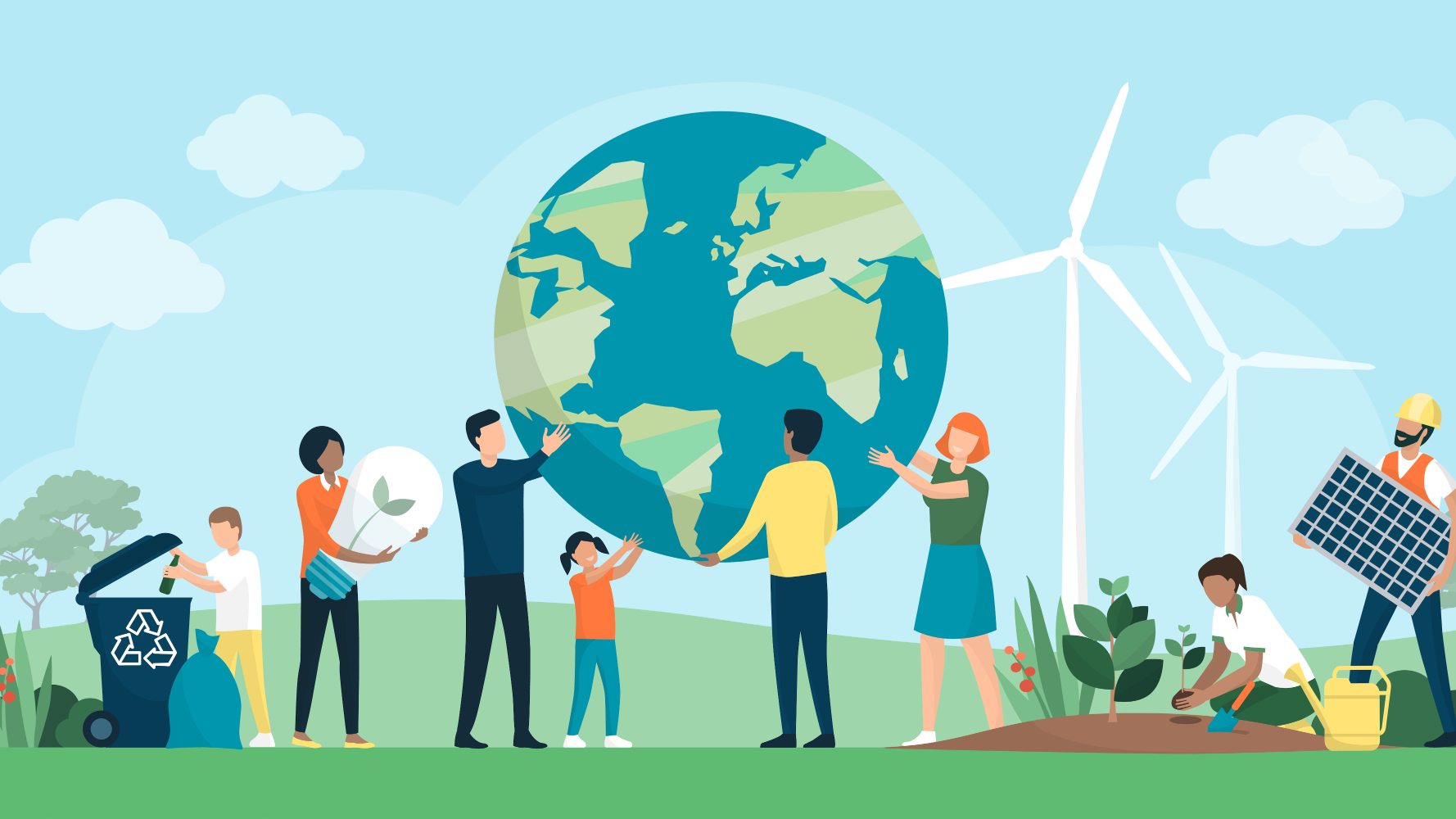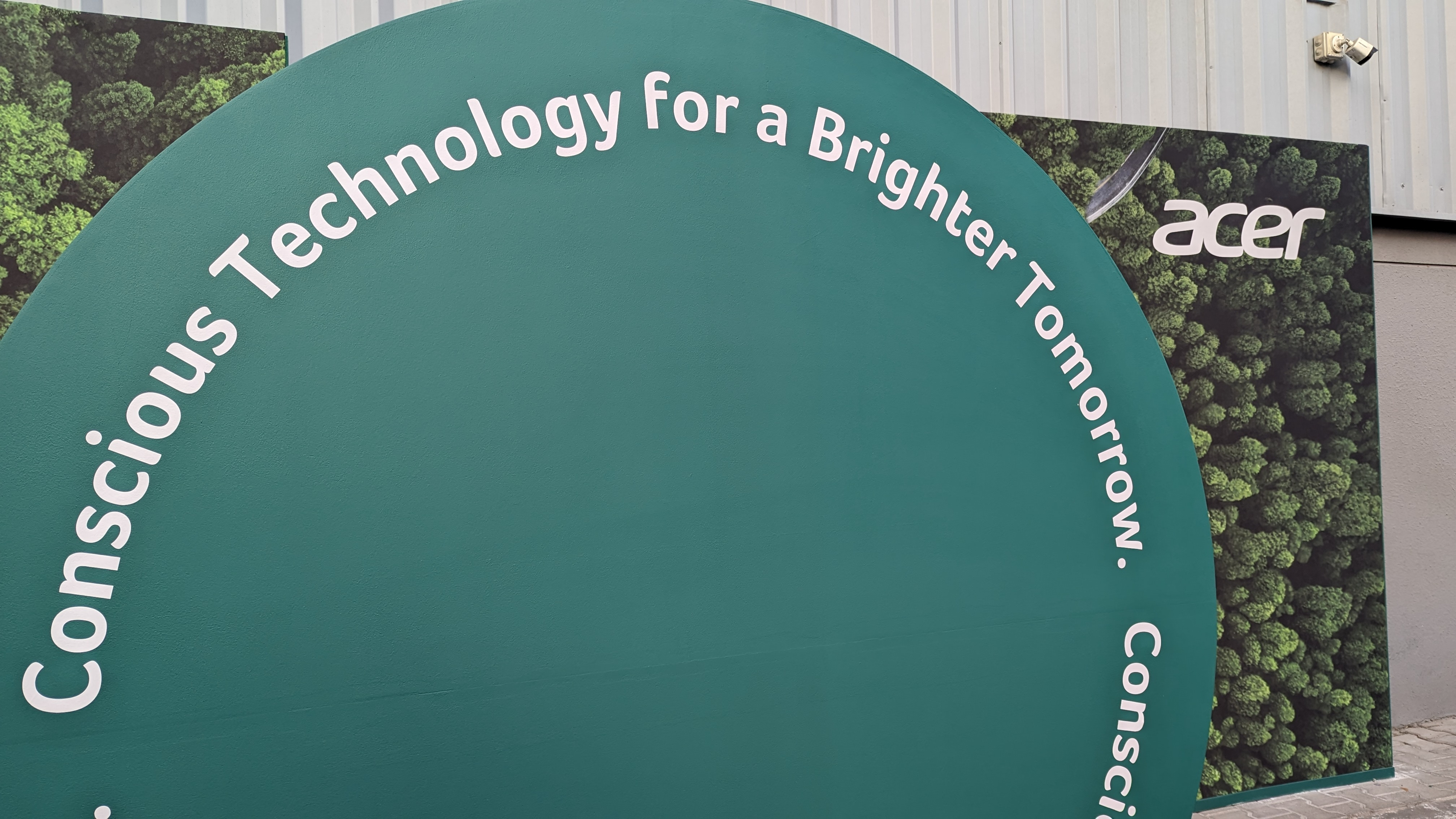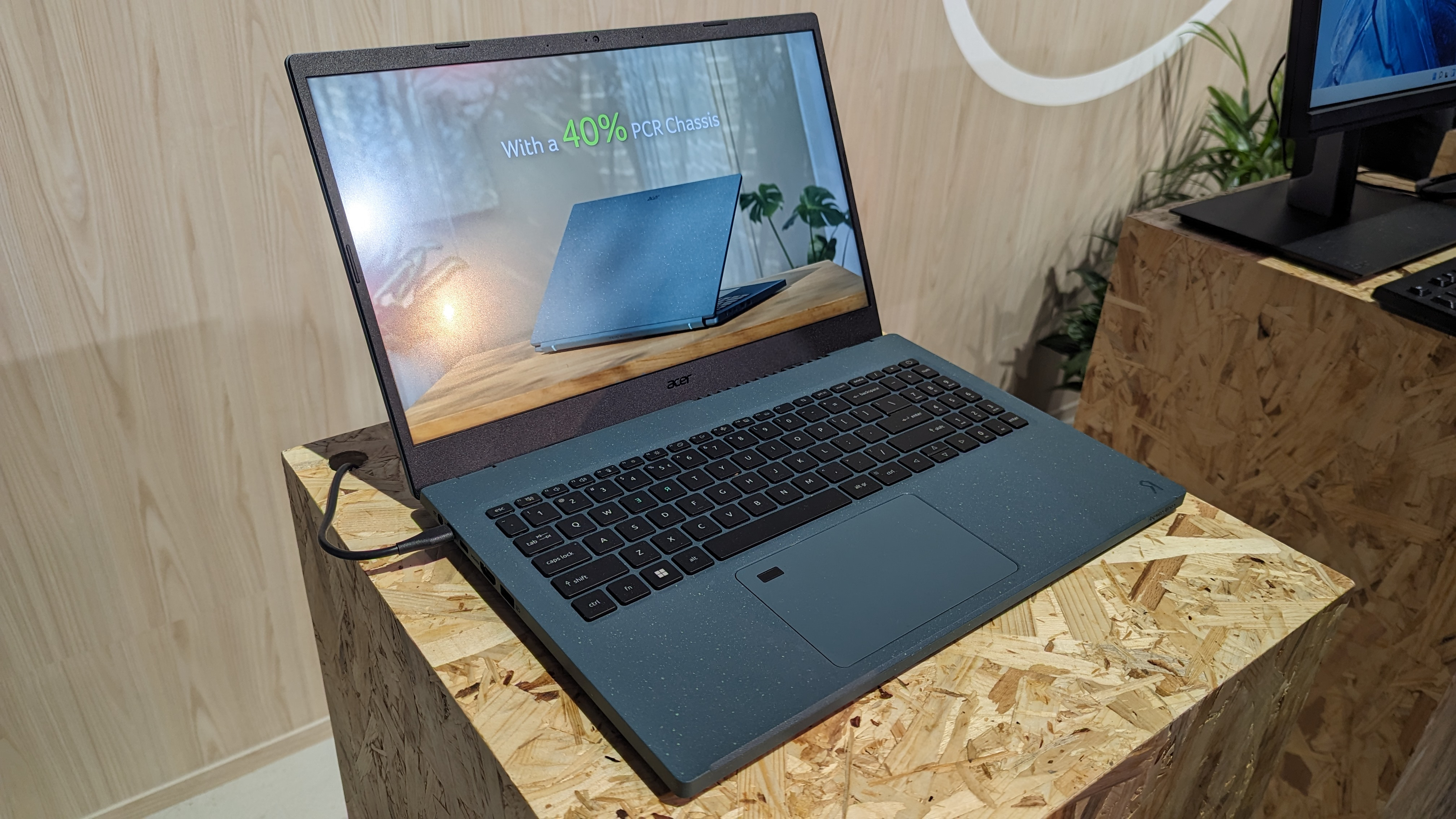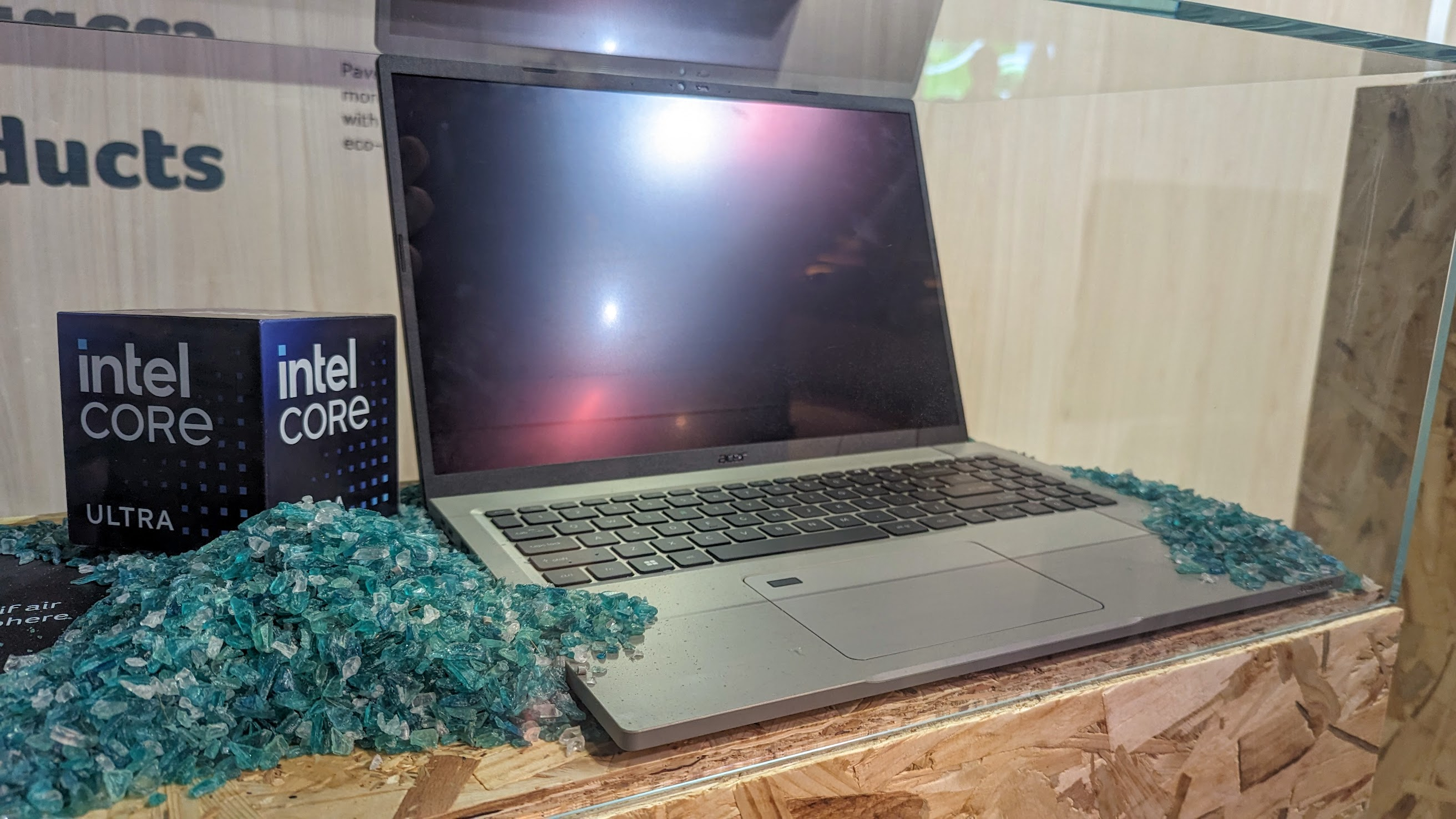
Acer is perhaps the laptop and PC maker with the most impressive track record when it comes to environmentally-friendly products and initiatives. While an increasing number of companies are highlighting their green credentials, Acer’s claims are authentic – mainly thanks to its excellent Vero series of laptops, which in the past have managed the tricky balancing act of combining a powerful and premium user experience with an ecological, energy-efficient, sensibility.
To coincide with the COP28 climate conference in Dubai, UAE, which is being attended by heads of states and representatives of companies and NGOs from around the world, Acer has been holding its own event to showcase its upcoming Aspire Vero 16 laptop, as well as highlighting its commitments to making both its products, and the company itself, as environmentally friendly as possible.
The environmental impact of the products we use is a growing concern for many people, and, as COP28 is highlighting, there's a growing urgency around efforts to minimize the negative impact many industries are having on the health of the planet.

However, in a year when the climate crisis has become more apparent, there has also been a big squeeze on the finances and living standards of many people, and that has led to a decline in laptop and PC sales.
When so many people are more concerned about paying bills than buying a new laptop, companies like Acer have a challenging time ahead – especially when balancing the growth of the company with its green commitments. So, what does the future hold? I sat down with Emmanuel Fromont, Acer’s EMEA President to talk about just that.
Has the Vero lineup been a success?
While I’ve admired Acer’s Vero lineup for a while now (many have been considered for our best laptops list), and Acer certainly seems keen on the product, I wanted to know how the company had found the customer response to the products to be.
“In general, it's good,” Fromont told me. “It still represents two to five percent of our sales, so it is a bit of a premium product. But I have to say, in Europe it has done particularly well. I think the UK started a bit later than others, but we’re now seeing big numbers coming from there. In the Nordics, Germany, Vero is doing well, and even in Dubai Mall, you'll see the Vero.”
In a market where few laptop series really stand out for consumers, outside of the likes of the MacBook, Dell XPS 13 and Lenovo ThinkPad, Acer has done a good job of raising awareness of the Vero brand – and a lot of that is down to retailers who see the potential of the product.
"We want Vero to keep being the flagship range – to show how far you can go when designing a green laptop."
Emmanuel Fromont, Acer EMEA President
“Retailers that carry Vero products from the beginning keep it generation after generation, and we never really lose the shelf space,” explains Fromont. ”The message is interesting for the entire supply chain, and retailers are happy to have a greener PC.”
This success, he tells me, allows Acer to now focus on making these laptops more accessible for a wider range of budgets. “Our goal is to make sure the premium for the green features gets lower, and we can make a larger part of our lineup eco-friendly. At the same time, we want Vero to keep being the flagship range – to show how far you can go when designing a green laptop.”
The success of the Vero range is promising, then. But does it signal that there’s been a change in customers’ desire to buy greener products?
“Yeah, and I genuinely believe the message is very clear that consumers need to embrace this, especially with events like COP28,” Fromont says. “It's a way to tell the world it's time to react. Every user needs to be part of the solution. I see more and more, especially the younger generation, being sensitive to the topic.”
However Acer is aware that there are still obstacles that are stopping many people from making the switch. “The less compromise there is on price, performance, and design, the easier it is for consumers to adopt greener products,” Fromont adds.

What sets Acer apart
Of course, with consumers becoming ever more ecologically-conscious, Acer’s rivals are looking to burnish their own green credentials. So, what sets Acer apart when it comes to its ecological promises?
“We've put it in the DNA of the company,” Fromont explains, “making sure our business is green. We started this almost 10 years ago, committing to less waste, less energy use, and relying on more green energy. It's part of our brand differentiation. Many companies are getting greener, but for Acer, we want the brand to be associated with being at the forefront of climate change reduction and the green revolution.”
In addition to consumers being savvier about the ecological impact of the products they buy and the services they use, there's also a growing awareness of ‘greenwashing’, where companies overstate their environmental efforts in a bid to appear greener than they actually are.
"We want Acer to be associated with being at the forefront of climate change reduction and the green revolution."
I asked Fromont how concerned Acer is about being accused of this. "We want to avoid being accused of greenwashing, so we communicate the real actions we are taking," he told me. "You can go on our website, or read a sustainability report, to find that out.
"The key is to measure, measure, and show the impact they are making. We commit to carbon neutrality to prove it's not just a marketing message but a real, measurable commitment. I think it's all about measuring and communicating, measuring and communicating. This is the only way you can avoid those accusations."

On the Acer Inspire Vero 16
The main focus of Acer’s keynote, which was led by CEO Jason Chen, was the upcoming Acer Inspire Vero 16. While more details about the hardware inside the laptop will be revealed in January at the CES 2024 expo (which TechRadar will be attending), Acer was keen to highlight how this model goes even further than previous generations when it comes to being eco-friendly.
“We're pushing the PCR (post-consumer recycled) material level to the highest we can, while also focusing on power management,” Fromont told me.” It comes with new technology, to be announced soon [at CES 2024], a refresh of the latest technology inside, and a push for maximizing the green aspects of the product. We've also worked on supply chain and panel efficiency, making it consume less energy.”
"Collaboration is crucial... It's a joint effort to make the industry greener"
Building an eco-friendly laptop is a task that Acer isn’t undertaking alone. At the keynote event, Chen was joined on stage by Intel’s Gokul Subramaniam and Microsoft’s Shelly Blackburn to highlight how the companies are working together.
“Collaboration is crucial,” explained Fromont. “The notebook supply chain is complex, and having partners like Intel and Microsoft onboard is vital. They focus on AI and technologies that, while demanding, also push towards sustainability. It's a joint effort to make the industry greener.”
The future of laptops
While a lot of the focus at both Acer’s event and COP28 is about the here and now, it’s also important to look to the future. So, I asked Fromont about what he thinks the next five years will look like for laptops.
“AI will change the way users interact with PCs,” he replied. “The input methods of text and voice control will converge with AI, making interactions more natural. Meanwhile, the look and feel of laptops will likely remain similar, focusing on the efficiency of the keyboard and screen. AI will optimize various aspects, including power management, as well as improving parts of the laptop, such as the webcam.”
And will laptop makers continue to step up when it comes to fighting climate change?
“I really do believe so,” says Fromont. “The industry as a whole is recognizing the need to be more virtuous. Government policies and consumer preferences will drive this change. Everyone in the supply chain needs to contribute to making the industry greener. It's not only about doing the right thing but also realizing that it helps business and financial success in the long run.”
We’re all in this together
Finally, I asked Fromont about what he personally, and Acer as a company, hope comes out of COP28.
“We hope it sends a loud message that climate change is a critical issue, and everyone needs to contribute,” he tells me. “Being at COP28 is a way for us to show that we're proud and confident in what we do. It's not about changing the world alone – we’re not saying Acer is going to save you. We’ll do what we can, but we have to have each company doing its part and encouraging others to do the same. The whole world needs to come together for long-term sustainability for all of us – and the planet in general.”







